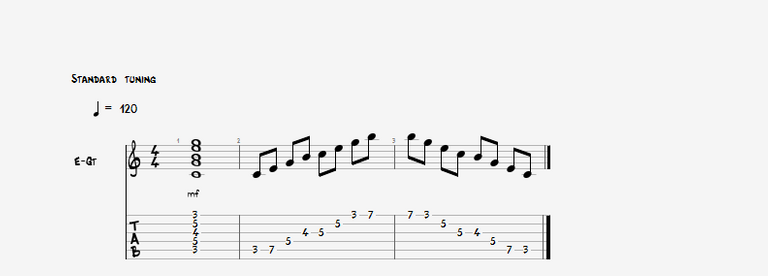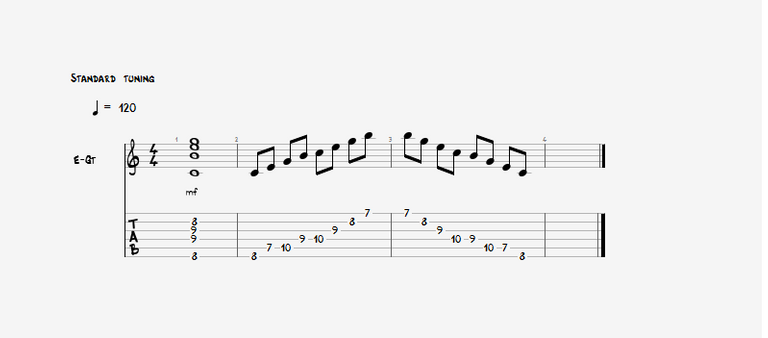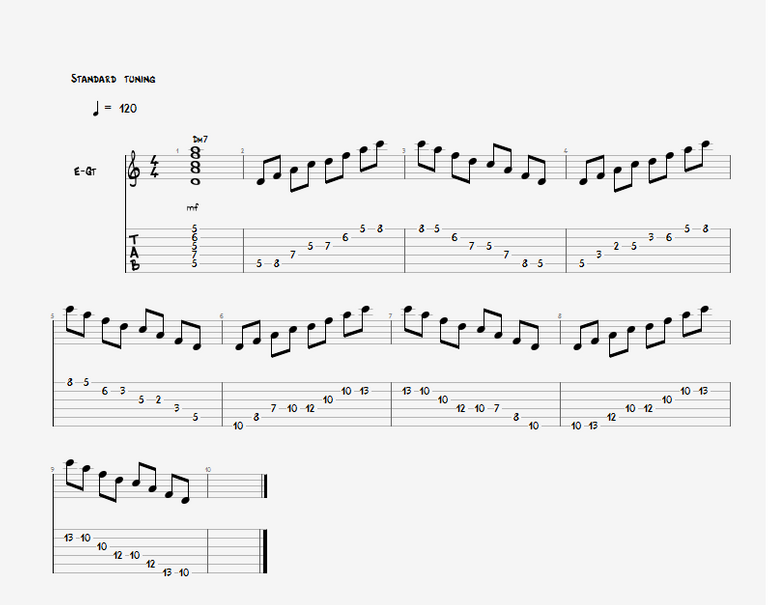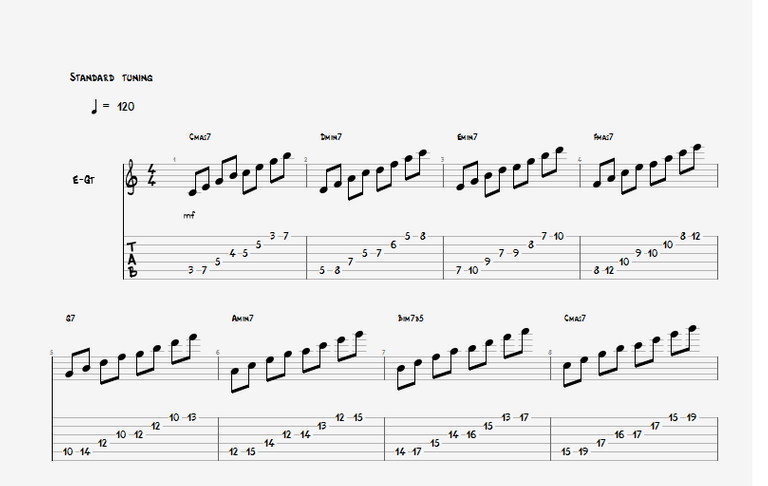Hey Steemit!
When I started playing guitar I never thought about theory. Like never.
It didnt even occur to me that it existed.
However, when i started high school I asked my guitar teacher how to improvise jazz-style. The answer i got was "just play on the chords". This meant nothing to me. And by that i mean NOTHING. I was like "play ON the chords??? How can i play ON the chords?". This was at a time when i didn't understand much of the theory behind music. Didnt recognize the different intervals or much of any scale or chord at all. It was all french to me.
Then when i started the university I got this amazing teacher. He told me in detail what it meant to play on chords and how to approach it. He taught me every single arpeggio for every single chord all over the neck. And thats when i understood the intervals and how chords are built in the first place. So the proper learning approach is really important here. I'm gonna try my best to pass it on in a less messy way than my first teacher.
First thing first; Every chord is built from a pattern. This pattern is 1-3-5-7-9-11-13 depending on how many notes you want in your chord. These are intervals that can be alternated in many ways, for instance; 1-3-5-M7 (major seven) or 1-m3-b5-7 (minor7b5) etc.
However, its always skipping an interval if you can say it like that. If the chord has a 2nd step in it, thats equivalent to a 9, because the scale starts over after the octave(11th is equivalent to 4th and 13th equals a sixth, mostly major). This does not mean you have to put the 9 on the top of the chord(brightest note). You can put it where you see fit. The most common notes to leave out is the fifth and first(because of the bass).
In this image I will show a Cmaj7. This is the center of a C-major scale.

Here you can see a C major 7 played as a chord in the most standard position. Then I've taken it apart in the standard position(1-3-5-M7-1-3-5-M7 and back down).

In this second image I still show the Cmaj7, but this time its in another position. Alot of the point is to learn every form and pattern of every chord over the entire neck. This pattern(and the previous one) can be moved all around the neck from the same string and be a major 7 chord. This is why patterns are so important and helpful as a guitarist. You learn all the chord patterns, then you make your own small melodies inside these patterns.
This next photo will show a D minor 7 in different positions. The different positions include the exact same notes.

So, the thing is to get every chord stapled in your memory. Start with the Cmajor scale (Cmaj7 - Dmin7 - Emin7 - Fmaj7 - G7 - Amin7 - Bmin7b5 - Cmaj7), break down every chord in every way as well as learning the full chord all over.
Here you can see the whole C-major scale broken in to the standard chords. Your job is to transcribe it to the rest of the neck. One of the most important things to remember here is that every pattern can be moved to their respective tonality.

If this is unclear in any way I can make another post with more detail, Just send me requests. The most important thing to focus on is that the scales and chords work together in every way, dont get stuck in scale improvising alone, but use it with the chords. Learn how the chords lies within the scales and vice versa. They might not sound so interesting by themselves, but think of the chords as an interesting way to use a scale. Try to break down every chord within its scale and make your own melodical patterns with the help of the chord build ups.
Hope this helps
Cheers!

Congratulations @mrcurlz! You received a personal award!
Happy Birthday! - You are on the Steem blockchain for 1 year!
Click here to view your Board
Congratulations @mrcurlz! You received a personal award!
You can view your badges on your Steem Board and compare to others on the Steem Ranking
Vote for @Steemitboard as a witness to get one more award and increased upvotes!